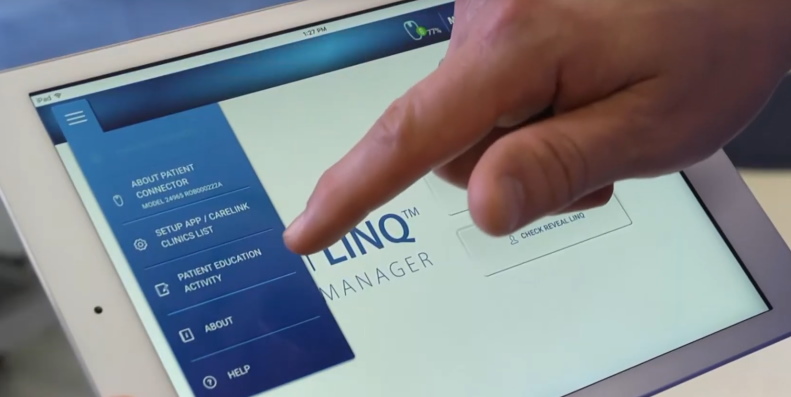FDA clears Medtronic AI algorithms for cardiac monitoring

Two artificial intelligence (AI) algorithms designed to diagnose people with heart rhythm abnormalities have been approved by the FDA for use with Medtronic's LINQ II cardiac monitor.
The AccuRhythm algorithms can be used to improve the accuracy of detecting atrial fibrillation (AF) – an irregular or rapid rhythm in the upper chambers of the heart – and asystole, a long pause between heartbeats.
AF and asystole are the most common false alerts when using implantable cardiac monitors like its Linq II device, according to the Medtronic. If the accuracy of detection is improved, that should mean fewer false alerts, and less time spent by electrophysiologists and device clinic personnel reviewing them.
Last year, for example, a review of more than 3,500 alerts in 61 patients with implanted heart monitors over the course of several months found high rates of false alerts with the devices – placing a burden on healthcare staff – and concluded that their accuracy was "suboptimal."
The same study called for new algorithms to reduce that rate and improve the capture of arrhythmic events.
Medtronic said the data validating its two algorithms which supported the FDA approval will be presented this week at the Heart Rhythm 2021 congress. They were developed using a database of more than 1 million electrocardiogram heart rhythm episodes.
According to the company, the AF algorithm reduced false AF alerts with the LINQ II monitor by 74.1%, whilst preserving 99.3% of true AF alerts. Meanwhile, the Pause algorithm reduced LINQ II false pause alerts by 97.4% and preserved 100% of true pause alerts.
The AccuRhythm algorithms will be released later this year for use by all implanted LINQ II devices in the US, it added.
They will "enable us to reduce clinical inefficiencies resulting from false alerts, and help physicians better identify and focus on the actionable data they need to treat their patients," said Rob Kowal, chief medical officer at Medtronic's cardiovascular diagnostics and services division.













